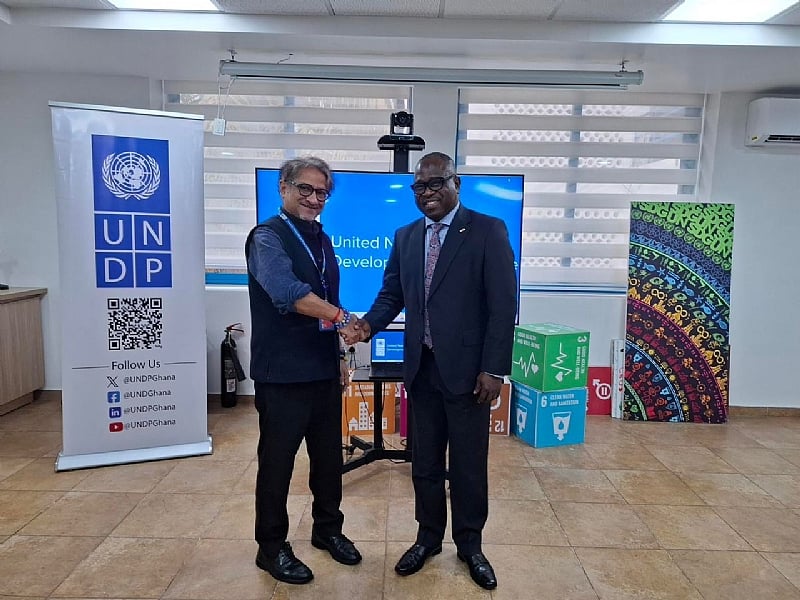The Ghanaian government is embarking on a significant initiative to bolster its response to the escalating climate crisis by establishing a National Climate Change and Sustainability Hub. This hub will serve as a central resource for coordinating climate action, fostering innovation, and building capacity across various sectors. Minister of State for Climate Change and Sustainability, Mr. Issifu Seidu, announced this pivotal development during a meeting with the United Nations Development Programme (UNDP) representative in Accra. This move underscores the government’s commitment to tackling climate change head-on and integrating climate resilience into the core of national development strategies.
The establishment of the National Climate Change and Sustainability Hub represents a strategic approach to consolidate efforts and resources in combating climate change. This centralized hub will play a crucial role in streamlining climate-related activities, facilitating knowledge sharing, and promoting collaboration among various stakeholders. By bringing together experts, researchers, policymakers, and practitioners, the hub aims to create a dynamic ecosystem that fosters innovation and accelerates the development of sustainable solutions. The hub will also serve as a training ground for building national capacity in climate change mitigation and adaptation, ensuring that Ghana has the necessary expertise to address the multifaceted challenges of the climate crisis.
Furthermore, the government is committed to mainstreaming climate action across all levels of governance. To achieve this objective, Climate Change and Sustainability Units will be institutionalized within all Ministries, Agencies, and Metropolitan, Municipal, and District Assemblies (MMDAs). This comprehensive integration of climate considerations into the operations of government institutions will enhance the effectiveness and impact of climate-related policies and programs. By embedding climate resilience within every facet of governance, the government aims to create a unified and cohesive approach to tackling climate change, leaving no institution behind in the pursuit of a sustainable future.
The UNDP Resident Representative in Ghana, Niloy Banerjee, commended the government’s commitment to inclusive climate governance and its forward-thinking approach to innovation in this critical area. He lauded Minister Seidu’s leadership in driving a coordinated national response to sustainability and advancing climate diplomacy on the international stage. Mr. Banerjee’s acknowledgement underscores the significance of Ghana’s proactive stance in addressing climate change and highlights the potential for the country to serve as a model for other nations in the region. The UNDP has expressed its readiness to further collaborate with the Ghanaian government, offering its support to this transformative agenda.
The discussions between the government and the UNDP focused on strengthening their collaborative efforts in several key areas related to climate action. These areas include climate finance, crucial for mobilizing resources to support climate-resilient development; the carbon market, which offers opportunities for emissions reduction and sustainable development; and gender mainstreaming, recognizing the disproportionate impact of climate change on women and the importance of their involvement in climate solutions. Other areas of collaboration include local climate action, empowering local communities to adapt to and mitigate climate change; utilizing Nationally Determined Contributions (NDCs) as investment tools to attract funding for climate projects; promoting water conservation strategies to address water scarcity exacerbated by climate change; and building the capacity of government actors to effectively implement climate policies and programs.
This comprehensive approach to climate action, encompassing national coordination, institutional integration, and international collaboration, reflects Ghana’s determination to address the climate crisis with a sense of urgency and purpose. The establishment of the National Climate Change and Sustainability Hub, coupled with the institutionalization of Climate Change and Sustainability Units across government, signifies a crucial step forward in building a climate-resilient and sustainable future for Ghana. This commitment to integrating climate considerations into all aspects of governance and promoting inclusive climate action provides a solid foundation for achieving long-term sustainable development goals. The partnership with the UNDP further strengthens Ghana’s capacity to effectively tackle climate change and paves the way for innovative solutions and impactful outcomes.


